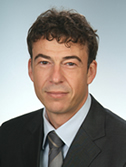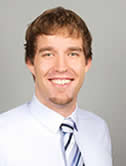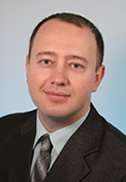TUB
TUB: Technische Universität Berlin
Institution :
The Technische Universität Berlin currently has approx. 31,500 students making it Berlin’s largest university. At present courses are taught by 331 professors and 2666 research associates. Undergraduate and postgraduate courses are offered not only in engineering and natural sciences but also in economics and social sciences.
The Department of Automotive Engineering as part of the Institute of Land and Sea Transport Systems at the Faculty of Mechanical Engineering and Transport Systems is covering research fields including vehicle conception, passive safety, pedestrian safety, vehicle crash compatibility, development process and computational methods, vehicle dynamics, energy consumption and emissions in road traffic. The section has a variety of modern CAD and CAE tools as well as test devices at its disposal.
Within EU funded projects the Department of Automotive Engineering participated in different projects in the fields of child safety and child modeling (CASPER, CHILD) compatibility and vehicle concepts (especially passive safety for new vehicle concepts).
The Department of Automotive Engineering has a permanent staff of 26 of which 19 are researchers.
Role in the project:
The department will contribute to this project by its vast experience in child safety, child modelling (CHILD and CASPER project) and the development of numerical models, especially parametric numerical models (FIMCAR project). Furthermore the department has generic CRS models at its disposal which will be made available for the project. The department has vast experience in the reconstruction of accidents and the analysis of the accident reconstruction and contributed to the development of Q dummy models.
Team:
 |
Prof. Dr.-Ing. Steffen Müller studied aeronautics at the Technical University of Berlin graduating in 1993 and finishing his PhD 1998. After working for ABB for 2 years he worked as a Postdoc at the University of Berkeley. 2001 he went to BMW where he worked in the chassis department. In 2008 he took over the Department of Mechatronics in Mechanical and Automotive Engineering at the Technical University of Kaiserslautern. 2013 he became Einstein Professor and head of the Department of Automotive Engineering at the Technical University of Berlin. |
|
 |
Dipl.-Ing. Stefan Kirscht studied automotive engineering at the Technical University of Berlin. Before graduating in 2013 he was involved in the CASPER human modeling activities of TUB as a junior researcher and was working on future restraint system at an OEM within his diploma project. In his research activities he is working on accident reconstructions, biomechanics and the development of generic car models for numeric impact simulations. |
|
 |
Dipl.-Ing. Vitali Scheck studied automotive engineering at the Technical University of Berlin. After graduating in 2012 he has been working at the Department of Automotive Engineering as a member of the research staff. His main focus is the numerical simulation. He is active in modeling and simulating of the fiber reinforced composite materials. Furthermore the M.Sc. student William Goede is working in the PIPER project as well. |
|
